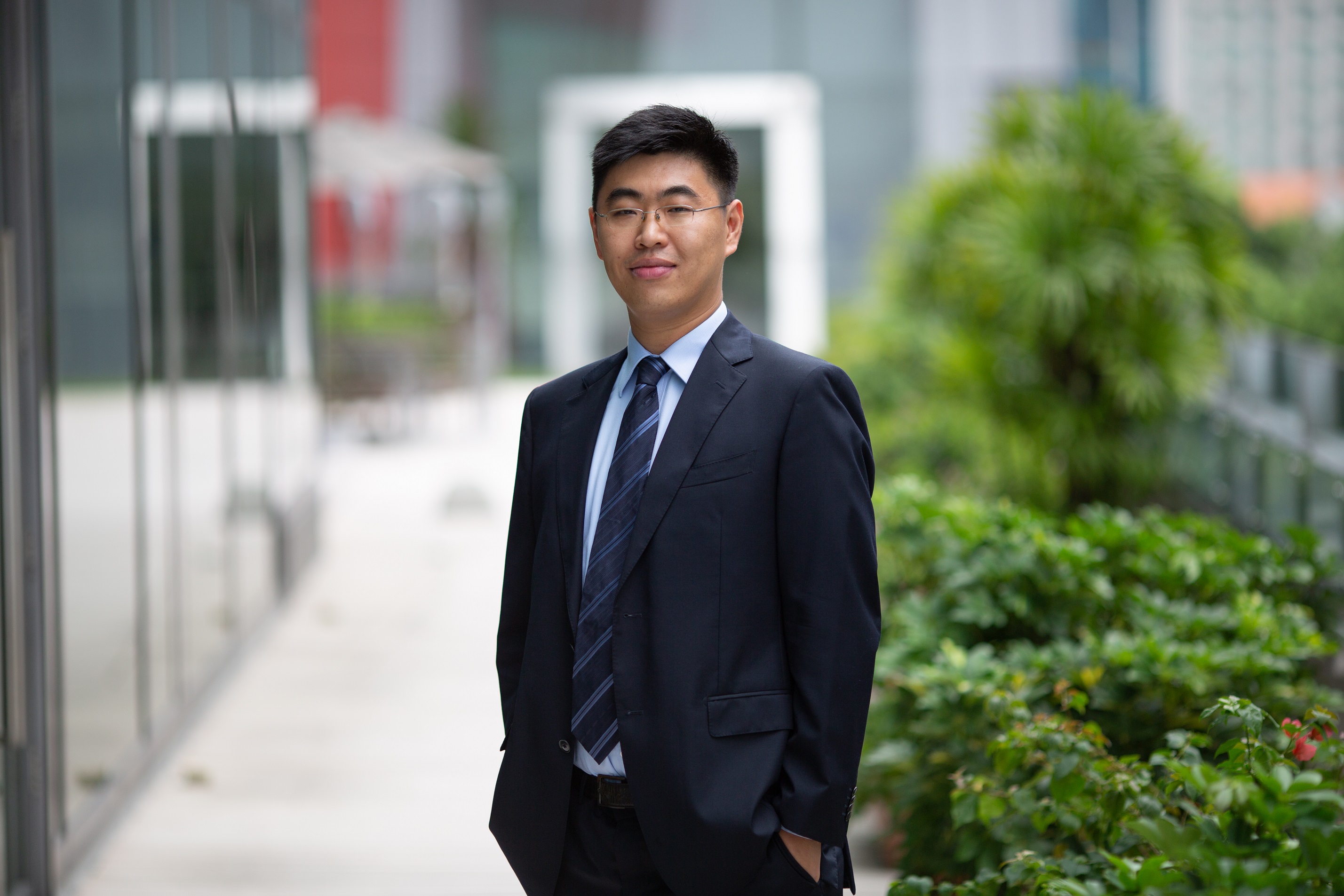
"At Ho Bee Land, we create with tomorrow in mind, with the aim to build a sustainable and better future for the next generation. The Ho Bee Professorship in Sustainability Management at SMU – awarded to Associate Professor Hao Liang – will advance our collective knowledge and expertise in this exciting and important field of study, for the long-term benefit of the community at large."
- Dr Chua Thian Poh, Executive Chairman, Ho Bee Land
Associate Professor of Finance Hao Liang has been studying sustainable finance almost from the start of his academic career. In 2016, just a year after he obtained his PhD, he co-authored the article “Socially Responsible Firms,” which was published in the Journal of Financial Economics.
Since then, he has published more than 10 other articles in refereed journals on various topics related to sustainable finance.
In July 2023, that focus paid off when Prof Liang received the Ho Bee Professorship in Sustainability Management. The award recognises Prof Liang’s research expertise and contributions in the area of Sustainability Management. The award was instituted by Ho Bee Land Limited in 2007 and amended in March 2023.
Sustainable finance is a field of finance whose goals are investing for long-term social and environmental sustainability, eschewing diversification in undesirable and unsustainable industries, and maximising the welfare of stakeholders, the environment, and society, while achieving financial value.
Prof Liang’s interest in this field dates back to his days as an undergraduate pursuing a degree in business administration at Nankai University in China.
At the time, the financial world was in the throes of the global financial crisis triggered by US subprime loans going awry.
The aftermath of the crisis had tipped the global economy into a worldwide recession. It also prompted Prof Liang to switch to academia and look into how to not only to navigate and avoid potential financial reefs and wreckage, but also how to better employ financial tools to invest and enhance economic sustainability.
“I began to think deeper about the role of finance and consider how finance could be a tool to serve society and how it can play a role in promoting sustainability,” Prof Liang recalled.
That led him on a journey to obtaining a doctorate in Finance at Tilburg University in the Netherlands and eventually to joining LKCSB in 2015.
Because of his expertise in sustainable finance, he has consulted for a number of financial institutions and companies, including those in Singapore and China. Among other things, he has helped a bank to establish a framework for measuring the environmental and social impact of its loans.
He does all this while continuing to do research and to publish. His most recent paper “Responsible Hedge Funds”, published in the Review of Finance in 2022, examines the performances of hedge funds managed by signatories of the United Nation’s Principles for Responsible Investment (PRI).
The paper found that while funds that endorse PRI often attract substantially larger investor inflows, driven in part by a distortion in supply and demand conditions for ‘green stocks’, most of them actually underperform traditional hedge funds by 2.45% per annum despite holding fairly similar portfolios.
This paper was co-authored with Assoc Prof Lin Sun of the Fanhai International School of Finance at Fudan University and LKCSB Deputy Dean Melvyn Teo, who is also the Lee Kong Chian Professor of Finance.
Prof Liang is currently working on a paper related to “greenwashing”. This is a practice where businesses claim to be, or appear to be, complying with domestic emission standards in their own country. In reality, they are actually achieving this by offshoring or outsourcing production (and hence actual cumulative emissions) to suppliers in their supply chains.
He cites the examples of electric vehicles (EV) and palm oil companies where it is imperative for lenders, investors and consumers to assess if the combined economic, financial and non-financial (such as labour-related issues) impacts are net positive or negative based on the UN PRIs. Overall, if all factors are assessed, are collective carbon emissions substantially reduced?
He also feels that companies need a better way to measure their performance. “While there are numerous ESG ratings and metrics, they have often been criticized for been insufficient in transparency as well as not reflecting stakeholders’ welfare,” he said.
Prof Liang proposed three criteria for assessment – intentionality, return and measurability – to determine the true overall sustainability impact by striking a balance between financial returns and positive social and environmental impacts.
He is now looking at ways to integrate the various existing frameworks into a more coherent and overarching one, which he calls it the Impact-Weighted Accounts framework (IWAF).
This framework has been co-developed and fine-tuned by the Singapore Green Finance Centre (SGFC), where Prof Liang is Co-Director, together with Harvard Business School, and the Impact Institute in Amsterdam.
The IWAF co-opts the key ingredients from existing frameworks and Prof Liang hopes it will provide companies with the incentive and ability to quantify or, in other words, monetize the overall ESG impact of their businesses alongside their balance sheets. This will allow others to compare and assess the net impact in monetary terms and help to better facilitate the decision-making process when investing or giving out loans.